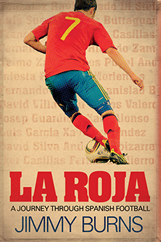A Spanish hero in London: Ignacio Echeverria
As part of a former imperial power that has punched above its weight for most of its history, there are some British who do not easily look outside their own people for heroes. Ask your average Anglo-Saxon English primary school pupil about iconic heroes they have heard about and they are likely to mention two warrior Queens-Boadicea and Elizabeth I -, two warrior prime-ministers Winston Churchill and Margaret Thatcher, among an assortment of military icons from Wellington and Nelson to Montgomery, and James Bond.
And when it comes to lesser mortals, there will be explorers, ordinary soldiers, policemen, and health workers all of which are considered the best in the world although when it comes to the National Health Service, the issue begins to get more complex, for there are a lot of foreign staff without which the NHS would collapse.
In this partial history of this island race-as Churchill defined himself and his fellow countrymen-foreigners , led by Spaniards, have all too often been on the receiving end of a cultural bias, more ridiculed than admired for their alleged incompetence and poor command of the English language as caricatured in the popular comedy series Faulty Towers by Manuel the Spanish waiter, and more recently exemplified by the visceral almost racist demonising in the Daily Mail of Alex Cruz, the Spanish CEO of British Airways over the airline’s systems collapse. By contrast in modern times if there have been Spanish heroes who have most easily won popular British plaudits it’s been footballers and Rafa Nadal, not ordinary mortals.
Which is why the example of 39-year-old Ignacio Echeverria is one worth pondering. He was a Spaniard of no celebrity status who like so many other Spaniards had been living and working in the UK as a EU national, part of a diaspora that has contributed for the better to the economy and cultural and social vibrancy of London, in his case working as a lawyer for a major bank, when not enjoying the freedom of the city, among men and women of all races and faiths, on his beloved skateboard.
Echeverria was with friends in the popular Borough Market near London Bridge -where pubs and fish and chips and English artists share community space with tapas bars and French patisseries and Asan and Middle Eastern restaurants , and visitors and local workers, including my colleagues from the nearby Financial Times-the world most international newspaper- buy food and share conversation from all around the globe.
It was Saturday evening and the market was full of Londoners and tourists enjoying the weekend when Echeverria saw a woman being assaulted by a man with a knife, and, without hesitating, came to her defence, hitting out at her assailant with his skateboard. As he did so, Echeverria himself was stabbed, fatally-thus becoming one of the victims of the terrorist attack that left eight people dead and dozens injured.
This is not the time to blame UK authorities or London hospitals for the delayed identification of Echeverria in the midst of an ongoing investigation into the attack. These are challenging times for the security and emergency services and they are trying best to protect lives, bring those responsible to justice and prevent further attacks.
But our hearts and prayers naturally go out to Echeverria’s family and friends, as we honour this Spaniard, who died so heroically on British soil, sacrificing his life in the face of intolerance and terror and in defence of a civilised multicultural democratic society he deserved, quite rightly, to be part of.
May he rest in peace. `


Comments